- Home
- Brian Garfield
Marshal Jeremy Six #4 the Proud Riders Page 5
Marshal Jeremy Six #4 the Proud Riders Read online
Page 5
He felt a little tired. He had been searching for two days now.
On top of the highest mountain in the district, he halted the pinto and took his time giving every piece of land in sight a careful scrutiny. Tired of cigarettes, he lifted from his vest pocket a Durham cigar; bit off the end, spat it out, and lighted the cigar. The tobacco was a little dry, but no matter.
He would have to try another vantage point. No one was in sight from here. He moved on deeper into the mountains, catching occasional sight of a great mass of rock and earth somewhere ahead of him, a mountain among mountains, an immense flat-topped monument with cliff-sides of bright red sandstone. The trail took him up and down the mountains; every chance he had, he skylined himself, half in the hope of spotting someone, half in the hope of himself being seen.
He chose a narrow game-trail that led up the rocky side of a hogback; came around a bend and found, dead ahead, a pile of shale blocking his way. Rockslide. He reined in, searched for a way around, and found none.
He was pulling the reins back to turn the horse around when a bullet smashed into the rocks directly in front of his face. Rock splinters grazed his face; his eyes immediately closed, instinctively; he heard the roar of the shot. Faster than thought, he dug his heels into the pinto’s ribs: the horse jumped, scrambled down the steep hillside, sliding and grabbing. His eyes watering, Paradise felt himself pitching from the tumbling saddle. He dimly heard the crack of another shot, heard someone’s voice roaring with rage. He hit the ground with a bone-jarring blow, threw himself to the side and rolled.
He heard small rocks falling, bouncing as they tumbled. He braced himself against a boulder, wedging himself into as small a space as he could; and lifted his sheath-knife. It was the only weapon he had.
Below, the pinto scrambled to its feet and trotted a few steps away, nervous and snorting. Paradise heard a sudden crashing of gunshots, and he thought, That’s two different guns. It wasn’t too hard to separate the deep round boom of a rifle from the sharper crack of a pistol.
There was motion back there in the rocks, out of sight. Paradise’s lips pinched together thinly. If he experienced any fear at all, he gave no sign of it. Knife raised, he began to make his way forward through the boulders.
A voice startled him: “You down there. Can you hear me?”
Paradise stopped and waited. The man’s voice was strong and direct. “This is Tracy Chavis talking. I’m not the man that ambushed you.”
“All right,” said Paradise. “Hold your fire, Tracy. I’m coming up. Where’s that other gent?”
“Dead. Dead up here. Who’s that talking?”
“John Paradise,” he said, and stepped into the open.
“Yeah,” said Paradise, “I know him.”
“I guess I do too,” said Tracy Chavis, “though I’ve never spoken to him. One of the Lockhart boys. I’m not sure which one.”
“They’re hard to tell apart.” Paradise prodded the awkward-sprawled redheaded corpse. “This one’s Elihu. He’s the youngest one.” His eyes were very cold, very hollow. “This is the second one I’ve seen die. I killed his brother Ephraim.”
“That must be why he ambushed you.”
“Yeah,” Paradise said, taking no pleasure in the discovery. Chavis looked as if he hadn’t slept in a week. He rested his shoulder against the bole of a pine tree. His eyes were narrowed; cigarette smoke trailed from his mouth and nostrils. He said, “He was so busy crawling up on you, he forgot all about looking behind him. He didn’t know I was there until I told him to throw down his gun.”
Paradise said, “Only the dead can afford to get careless in this country.”
“He must have seen you didn’t have a gun.”
“That kind of detail doesn’t make much difference to a Lockhart.”
“I guess not,” Chavis said. He touched his gun. “And there’s three Lockharts left.”
“It was a Lockhart,” Paradise said, “who did this to me.” His left hand touched his empty right sleeve. “I’d say we were pretty even, but I doubt Ike will figure it the same way when he finds out.”
“Right now,” Chavis answered, “I haven’t got time to hunt him up and give him the news. It’ll have to wait. I’ve got to catch a horse.”
“You mean you haven’t got him yet?”
“No. You know about this?”
“I talked to Connie.”
Chavis’ eyes flashed momentarily. “I see.”
“Take it easy, Tracy. Don’t make a mountain where there isn’t even a molehill.” He stepped forward, knelt down and studied the dead redhead’s youthful upturned face. “Odd,” he murmured, “how it takes twenty years to make a man—even as poor an excuse for a man as this one—and all it takes to end him is the time it takes a bullet to get to him.” He looked up with a harder face. “Let’s bury him, then, and get after that horse of yours.”
“Sometimes,” said Tracy Chavis, “I get the feeling the whole thing’s a bad dream. I’m never going to catch that palomino.”
They rode out of the trees into a mountain-ringed valley clumped with juniper and live oak. An earth-colored lizard skittered across the ground and darted to cover beneath a bush. Chavis said, “We’ll climb that summit and see what we can see.”
Paradise had a slightly ironic smile on his face. His seat felt as though he had ridden up and down every mountain in Arizona in the past two days.
As they set out across the valley, he said in a voice gone husky, “I thought you had two cowboys helping you out.”
“One of them drew his pay and I sent the other one back to the ranch to keep an eye on Connie and Peggy. I was about to give it up myself, when you showed up.”
Paradise shook his head. “No man in his right mind sets out to catch a wild horse the way we’re doing it. You need a big crew of men, a string of relief horses, and time to build brush traps.”
Chavis said grimly, “Just be ready to head him off when we get him spotted, John.”
Paradise felt chapped and bruised, scraped and sunbaked and windburned. There was a deep, drained ache in all his muscles. He was a fighting man by profession, but most of his life was lived in saloons and card-playing rooms; his living was earned, for the most part, at the games of faro and poker and keno. Prolonged exertion was something he was not accustomed to. Now his raw eyes had sunk even deeper into their sockets; his hand was leather-sweated; a leg of his suit trousers was ripped open at the knee and his leg was scabbed where a branch had raked him. He felt filthy and gritty, as if sand had got into his pores and his joints and he had arthritis in all his bones.
At the foot of the mountain they paused to breathe the horses. Then Chavis put his dun cowpony up the slope and went up the steep mountainside like a mountain goat. The horses scrambled for footholds, hunched and lunged, and finally crested the mountaintop.
Chavis looked back at him with quiet amusement. “Let me know when you get your breath, partner.” Then he looked out across the range—and abruptly sat bolt upright on the saddle. His arm lifted and pointed down below the distant sawtooth peaks that stood blue-violet against the western sky.
Down past the timber of the mountain slope, down past the scrub brush flats and the sun-battered greasewood plain, just up against the base of the Sangres’ vast upheaval—it was there, ten or twelve miles away in the hills, that Paradise saw the thin yellow haze of risen dust. It hung in a slow-settling pall that rippled forward along the base of the hills.
“Wild horse herd,” Tracy Chavis said, hardly keeping his low-pitched excitement in check. “We’re getting close!”
“Could be a bunch of riders or some cows.”
“No, I doubt it. What would a bunch of riders be doing down there? And it’s moving too fast for cattle. No. That’s our stud and his horse herd.” He shaded his eyes for a glance at the sun. “We can make it over there by the middle of the afternoon.”
Paradise gave him a ragged look and slowly began to smile. Chavis nodded and put his horse
over the edge. Paradise watched it go down the steep slope, haunches low and forelegs braced stiff, half-sliding, half-walking. Paradise gathered his reins, uttered one bleak quiet oath, and started down.
Chapter Six
The strong sun slanted across the tawny hills. Tracy Chavis stood under a spring-engorged mesquite in a fragile web of sunlight and shadow. The shortgrass was broken down, trampled so recently that it had not yet sprung back. Chavis knelt to touch a horse-dung pie. “Still soft and warm.” He wiped his hand on the fresh grass. “They grazed here a while. That’s a break for us.” He got to his feet and pointed away along a line of trampled grass. “A man breaks the grass down in the direction he’s traveling, but a horse does the opposite. The grass points west, but those animals went east.” His arm swung up, lifting toward the dark heavier mass of the central range. “Up there.”
“Lot of country to cover,” John Paradise observed.
“Not so much,” Chavis answered. He reached up to wipe his sleeve across his sweat-oiled forehead. It gave him a nasty scrape: he had forgotten the leather cuffs on his wrists, laced there to prevent rope burns. He cursed absently and said, “Try to think like a horse for a minute.”
“Sure,” Paradise said drily.
“I’m not fooling.”
“All right. What does a horse think?”
“Thinks about grass and water,” Chavis said. “And a safe place. Now, this grass down here’s mostly yellow and dry. But up on top there’s nothing but rocks and stunt timber. And pine needles don’t make good eating, either. A smart horse wouldn’t go up as high as timberline. He’d hunt for a green grass meadow with a fresh spring or a creek. He’d stay clear of timber groves because mountain cats like to jump out of trees, and he’s got some fillies and colts not yet a year old in his bunch. He’d find himself a point of land that overlooks the area, so he can keep watch on the herd.”
“You’d make a smart stud, you would,” Paradise remarked.
Jog of hoofs, jingle of bits, creaking of leather. A fierce wind raked the high slant, whining along the naked rock faces and rustling through the belt of trees and sweeping up the curling mountains with a steady cry. The two horsemen crossed a moss-bed stream and stalked the canyons hump by hump, riding slowly and searching with care. The sun threw a last burst of flame-red cloud along the far horizon. In the chill thin air, Chavis’ flesh rippled. His mouth hung slack with fatigue. He waited for Paradise on a grassy mound, and stared hollowly forward across a tilted sea of earth swells.
Paradise murmured drunkenly, “Up there—maybe up there in the next meadow.”
“We need some rest, John.”
“In a little while.”
“Now,” Chavis said, summoning firm will from some new pit of strength. “Right now. Even if we stumbled on that horse just now, we’d neither one of us have the strength to throw a rope.”
Paradise’s eyes came down from the higher slopes and shifted around to Chavis. “I guess that’s right,” Paradise said.
They pitched camp in the trees. In plum-colored dusk they ate a silent cold meal. From some vaguely remembered moment in the past, a fragment came into Tracy Chavis’ head. The sailor’s prayer, they called it: Oh God, Thy sea is so great, and my boat is so small. It seemed to make a lot of sense right about now.
He said, “What made you come along with me, John?”
Drowsily: “You saved my life down there when Elihu Lockhart ambushed me. I owe you that.”
“No,” Chavis said. “You came down here to help me out, and you’d made that decision before Lockhart bushwhacked you.”
“Then let’s just say I want to be remembered for one good thing I’ve done.”
“What do you mean?”
Paradise said, “Nobody knows a man like me, Tracy. All they ever see is a gun walking around with a man attached. When I’m dead all they’ll remember is the number of men I killed, as if it was some way to keep score in a game. I want to be remembered for something besides that.”
“You’re not dead yet.”
“And I’m in no hurry to get dead. But in my business it doesn’t pay to make long-term plans.” Paradise’s voice became a little sour: “Don’t ever get the brand of the gun, Tracy. It burns so deep you can never rub it off.”
“Maybe you haven’t tried,” Chavis suggested.
“Too late to try,” Paradise answered. “Listen, my friend, I was born into one of the wealthiest families in Georgia. But General Sherman and General Grant changed all that. My family lost everything they had. I grew up dirt poor after that, until I made my first big stake in a riverboat poker game. And I’ll tell you this much, my friend—I won’t start at the bottom again. I’ve been there, and it’s too crowded. No, I won’t quit, Tracy. I’ve had it pounded into me that either you starve or you steal, or you fight. So—I fight.” He rolled over on his side and pulled his hat down over his face. “Now let’s get some sleep.”
.... Tracy Chavis came awake all of a piece, at once fully alert. His hand reached his pistol grip. He turned his head very slowly from one side to the other, searching the night with eyes and ears.
The moonlit canyons glimmered faintly. John Paradise’s blankets lay empty, thrown aside; Paradise was nowhere around. It made Chavis frown.
He picked up a small motion in the corner of his eye, and shifted his head to look that way.
A bobcat stood on its four feet, watching him from the edge of the clearing twenty feet away.
Chavis sat up, cocking the gun. The bobcat swung its head from side to side. Chavis thought, Hold your fire, now. And, presently, the bobcat presented its back to him and slipped away into the night.
The air was sharp with chill. Sitting up, Chavis reached down for his blanket and gathered it around his shoulders. The cat was gone but something of it lingered behind, perhaps a faint musty scent.
Chavis glanced at Paradise’s abandoned blankets: He’d have taken the blankets with him if he wasn’t coming back, he thought. But where the devil was Paradise? What was he up to? The man was always unpredictable, driven by the whims of his capricious nature. Chavis hadn’t seen him in years: suddenly Paradise showed up from nowhere, as if it were the most natural thing in the world, and pitched in to help out.
And then disappeared. Where had he gone?
There was no point in worrying about it; no point in wasting the energy it would take to go searching for Paradise. Paradise had come of his own free will, and he had the right to leave the same way, whenever he pleased.
Chavis lay back and stared at the stars.
Paradise arrived so softly that Chavis didn’t know he was there until Paradise said, “Those horses are just beyond yonder ridge, Tracy.”
Chavis sat bolt upright. Paradise had his hat on, and Chavis could not make out his face; he thought the man was grinning. Chavis got to his feet and reached for his coiled rope. “The palomino there?”
“Standing guard like any good stallion.”
“Let’s go, then,” Chavis said. “Lead the way—but walk soft, John. Pretend you’re walking on eggs.”
Chavis found himself walking crouched over. There was no need for that, and when he realized as much, he straightened up, putting each boot down with extreme care.
They climbed through dew-softened grass. Paradise whispered, “This is the downwind side. We’re all right.” The wind hit Chavis in the face when he got near the top. They got belly-down and crawled to the crest, removing their hats. The moon was far over westward, a little more than a half-moon, bright and pale: dust around it was a luminous ring.
Chavis peered down into the dark flow of the meadow, faintly aglisten with dew. Dark shapes in the grass were the wild horses, quietly grazing. Chavis counted eight—no, nine: there was one blended in against the shadow of an outcrop on the far side of the meadow.
He didn’t see the palomino right away, and sudden fear struck him. But beside him Paradise stirred, placing his lips close by Chavis’ ear: “Over there, on the poi
nt of rock.”
Chavis looked to his right. And there, silhouetted against the moonlight, the palomino stood proud, with wind roughing up its mane and tail, making them seem translucent. Pale gold, silvered by the moon, the stallion turned its head slowly back and forth, keening the wind and the wilderness.
Paradise talked softly, in a whisper not meant to carry farther than Chavis’ ears. “It’s your game, partner. What do we do for openers?”
Chavis considered it, considered the browsing mares and colts, the slope of the ground, the direction of the wind, the silhouette of the magnificent golden stallion against the sky.
When he didn’t speak right away, he heard Paradise say, “I’ll go back and get our horses.”
“No.”
“What?”
“We’ll never catch that palomino on horseback. He’d outrun us for sure. No, for openers we stay right here on our bellies.”
“I always knew you were crazy.”
“Look,” Chavis insisted. “We’ve got no chance of getting any closer to him. He’d spot us. But he’s bound to make a circuit of his herd sometime soon, and he’ll likely come pretty close under here. That’s the only chance I’ll have to drop a noose on him.”
Paradise considered it. Grudgingly he nodded. “But why not lay out a big loop and wait for him to walk into it—and then pull it tight around his legs?”
“He’s too smart for that. He’d smell man-smell on the rope and step around it.”
Paradise said, “I guess it takes more to catch a wild horse than I figured it would.”
Slowly, without sound, Chavis snaked out an oval lariat-loop on the ground beside him and arranged the coiled rope in his left hand for a quick release. In his mind he rehearsed every action his muscles had made, time after time, in all the years he had been throwing a rope as a working cattleman. This was no small-town rodeo: there would be no chance offered here to recoil the rope and make a second toss. His first throw had to be true. And, he thought, everything I hope to own rides on that toss.

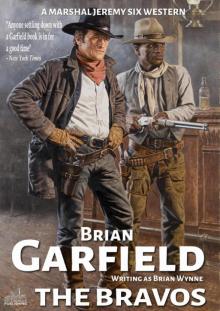 Marshal Jeremy Six #3
Marshal Jeremy Six #3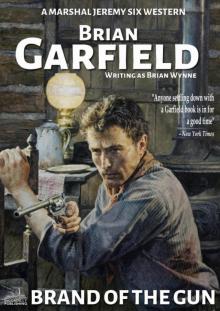 Marshal Jeremy Six #6
Marshal Jeremy Six #6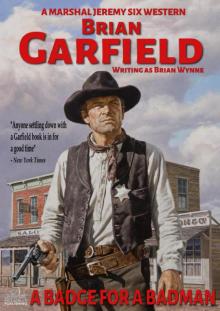 Marshal Jeremy Six #5
Marshal Jeremy Six #5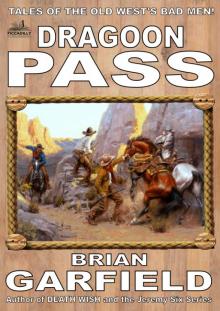 The Outlaws 2
The Outlaws 2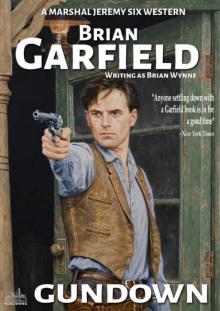 Marshal Jeremy Six #7
Marshal Jeremy Six #7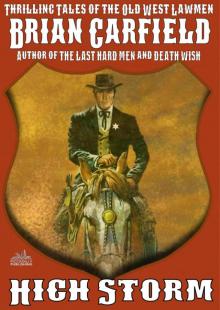 The Lawbringers 4
The Lawbringers 4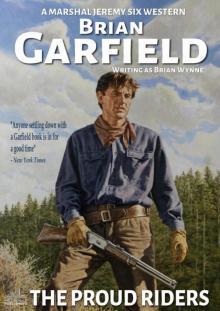 Marshal Jeremy Six #4 the Proud Riders
Marshal Jeremy Six #4 the Proud Riders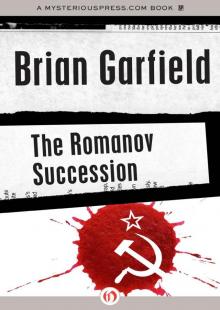 The Romanov succession
The Romanov succession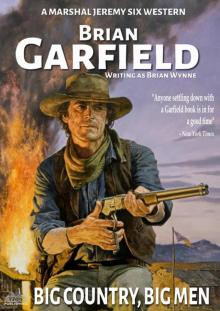 Marshal Jeremy Six #8
Marshal Jeremy Six #8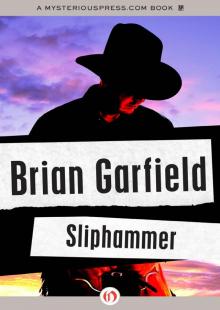 Sliphammer
Sliphammer Line of Succession
Line of Succession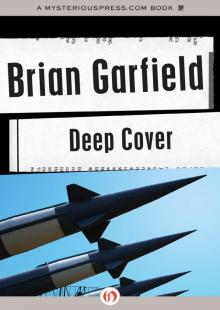 Deep Cover
Deep Cover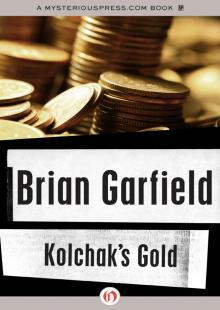 Kolchak's Gold
Kolchak's Gold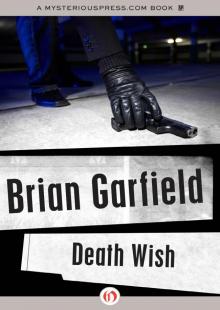 Death Wish
Death Wish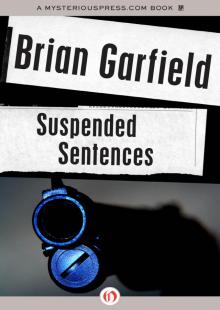 Suspended Sentences
Suspended Sentences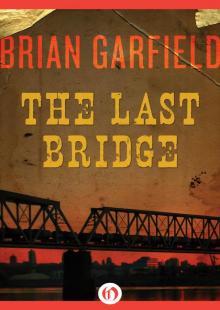 The Last Bridge
The Last Bridge Relentless
Relentless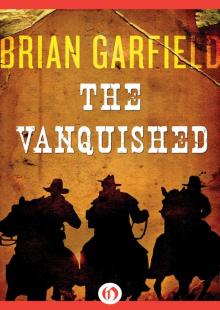 The Vanquished
The Vanquished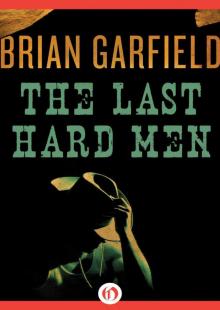 The Last Hard Men
The Last Hard Men Hit and The Marksman
Hit and The Marksman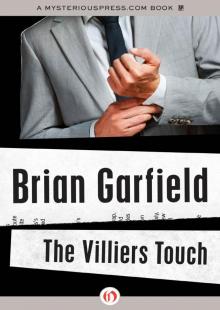 Villiers Touch
Villiers Touch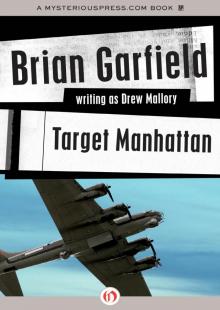 Target Manhattan
Target Manhattan Marchand Woman
Marchand Woman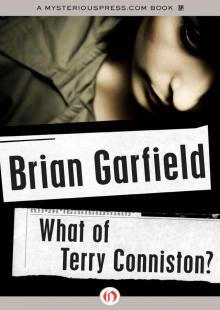 What of Terry Conniston?
What of Terry Conniston?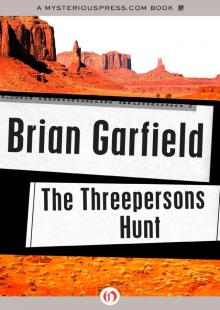 Threepersons Hunt
Threepersons Hunt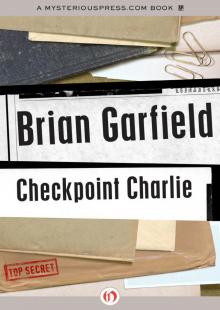 Checkpoint Charlie
Checkpoint Charlie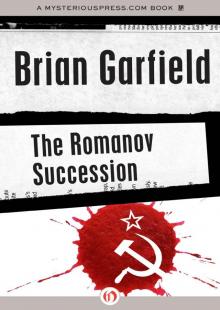 Romanov Succession
Romanov Succession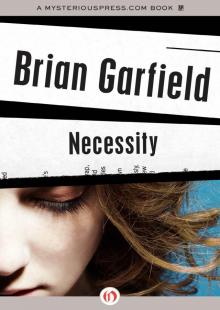 Necessity
Necessity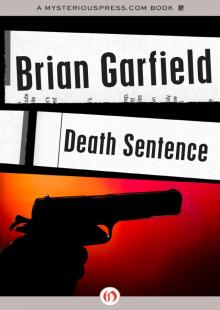 Death Sentence
Death Sentence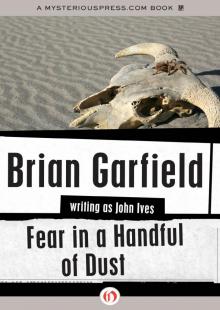 Fear in a Handful of Dust
Fear in a Handful of Dust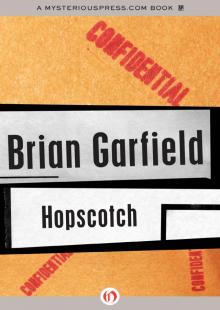 Hopscotch
Hopscotch